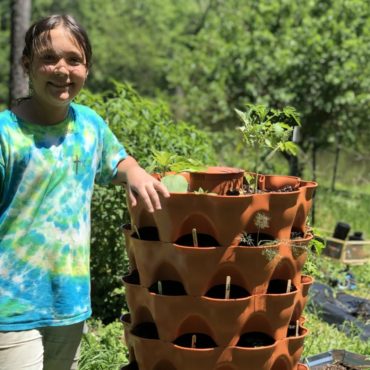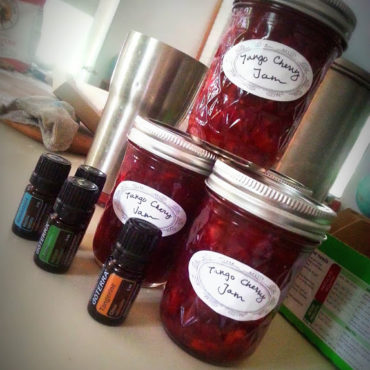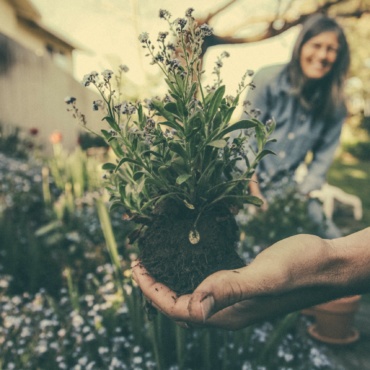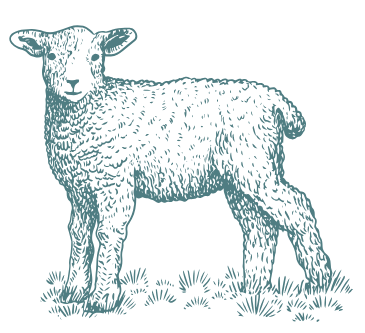Every Man for Himself
True self-reliance is very self-centered. It’s kind of a revelation if you think about it…
For years we have been learning and trying to implement more self-sufficient ways. Farming, gardening, planting fruiting perennials, learning about livestock care, and trying to connect and understand natural living from health to building to plain old fun and games. And yet, we’re not really much closer to actually living off-grid or being self-reliant.
Maybe we’re doing it wrong.
But, we have come to some conclusions.
Farming does not pay the bills
Farming/Homesteading–unless you are gifted land & house–requires a lot of monetary input.
It’s a LOT of work, so if you have a day job to pay for it…you’d better be youthful and strong because you’ll be pushing your body to do things it wasn’t built to do. At least not long term.
It’s gratifying but doesn’t pay the bills. Even if you can get the price you ask, don’t do the math. One dead animal and you are lucky to get back to zero. One bad crop and you’re lucky to come out having learned how to do it right the next time, weather depending of course.
I know a lot of farmers don’t do the math.
Or they do but don’t account for expenses like… the cost of land, cost of food, or even cost of labor. You may come out even, or a little higher, but you have invested HOURS upon HOURS of time and not paid yourself.
You can’t do it all when it comes to farming!

Gardening, working a full-time job, normal life-occurrences, house maintenance, vehicle/tool maintenance, tool purchasing, dealing with customers, weeding, education, worming, milking, culling, processing, did I mention child-rearing?
It’s just not possible.
And it sure is a lot to put on your plate and try to make happen and not go a little insane. Something has to give.
Those who are ‘successful’ have written a book, or have a stellar youtube channel (which is another full-time job), have no children or have a family farm, and all that comes with that.
All this is very defeating and for those farmers I know, who are hopeful and eager and WANT to make it work, this all sounds really depressing. It isn’t what they want to hear.
We WANT the world to work the way we have in our beautiful, Utopian dreams.
If you want it, then think outside the box.
Find what makes farming work
Mark Shephard (and I can’t quote because it was in a speech we saw at a Carolina Farm Stewardship Conference a few years ago) said plainly–you have to be a part of something.
You have to help start something that will pay the bills.
For him, it was the Organic Valley co-op, and perhaps writing books. His farm did not pay his bills. His farm is so beautiful and really the end goal for us. It provides an overabundance of produce and is self-sufficient, but NOT income-producing. At least that wasn’t the end goal, from what I understood.
So, then what? Here I am dashing dreams and not giving solutions. But, that’s not my purpose.
My purpose is this: find the thing that makes it work!
Write a book if you’re good at that. Get a smaller bit of land so you don’t have a mortgage that drags you down. Save up until you can buy 1 acre and do it right, and small and efficiently by yourself.
We use about 1/3 of our 15.5 acres. We just don’t need that much. It’s sooo much to manage already!
Make every step meaningful and satisfying
We have spent the last 13 years seeking ways to interact with our environment in a meaningful way. It started when we lived in our first apartment with just a few potted plants outside our door.
We moved to another apartment and grew as many window boxes and terra-cotta pots full of tomatoes and herbs as we could–sharing with our neighbors and enjoying the simplicity of picking a tomato and eating it…
As soon as we had a yard we were planting, playing, cleaning up years of damage and neglect, and over the course of 7 years there created a little bit of paradise on less than a quarter of an acre. We had chickens and bees and enough produce to can & sell at the local farmer’s market.

It was manageable and we left that property only to have a space to have livestock–particularly goats.
So now, on 15.5 acres we find ourselves learning more all the time. And realizing too, that the dream of farming isn’t exactly where our path was leading. Our dream is a little bit bigger than that. We’ve had goats and have decided sheep are our animal of choice. Not only is their meat delicious, but they are more docile, less eager to escape and be mischievous, but also they provide us beautiful fiber that we’ve used for lambskins that are draped over every chair and couch, wool-filled bedding and much more.
But that’s not the point of writing this.
Be more than eager and clear on achieving your goals
The point is, we are eager-learners. Hands-on learners.
Which is probably a good thing considering our property, and considering that we do farming. Nothing about it was prepared for a farm–it was simply a ranch in the woods when we got here. We’ve put up fences and barns, we’ve taken out trees and are creating some pastures. But, we have struggled to garden and it’s been almost painful, but eye-opening.
This year we have returned to our beginnings. Though we doubled our perennials, it will take several years before we see much production there, we have pared down our annual garden to about 12 pots of tomatoes, herbs, rhubarb, and cucumber.
I plan to start some more lettuce, and maybe some pumpkins in some landscaping that is new and goes around the ‘addition’ we’re adding where the majority of our garden used to be, but it’s a little freeing to have released that project for a season.
Our property had never had a garden, the battle to begin gardening in a space recently cleared is a real one. The weed pressure is immense, and we likely bit off more than was chewable. And it was frustrating.
Farming can be really frustrating.
The point of sharing all of this is merely to remind everyone in shoes like ours… to struggle is not bad, but it’s not always good either. Sometimes the struggle points us in a new way, it gives us a new course.
Do I feel less connected to gardening or the desire to be self-sufficient? Not at all.
But we do have a more reasonable expectation. We have a clearer connection with the idea that it can’t all be individual. Our orchard is healthy and strong, our perennials are becoming established and some of our early efforts there are showing us that the efforts we put in haven’t been lost.
Let us accept that we are not truly alone
The best-case scenario for sustainability is to let everyone be successful at the one thing.
No one household can be 100% independent–it’s simply not how the world was created.
Our vision for collaboration and community continues to grow. Only in a model where you can count on your neighbor to swap tools, resources, seeds & produce can we have the kind of sustainability that is lasting. Only in having a beautiful tapestry of people who are committed to contributing their talents & skills can we have a blanket without holes.
And so, I have questions for anyone reading…
What skill or talent do you have to offer a community? And, what skill or talent would you need to rely on others to help you with?
In a day like today we’re all shuffling around trying to do it alone. Or trying to get enough money to pay for someone to do it for us–still from our own labor.
What if our efforts were joint? And what if our skills were highlighted? What if we could accept not being alone or self-reliant?
[activecampaign form=25]






Add Comment